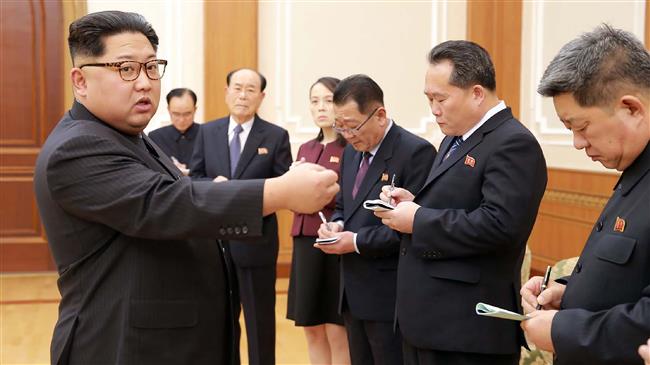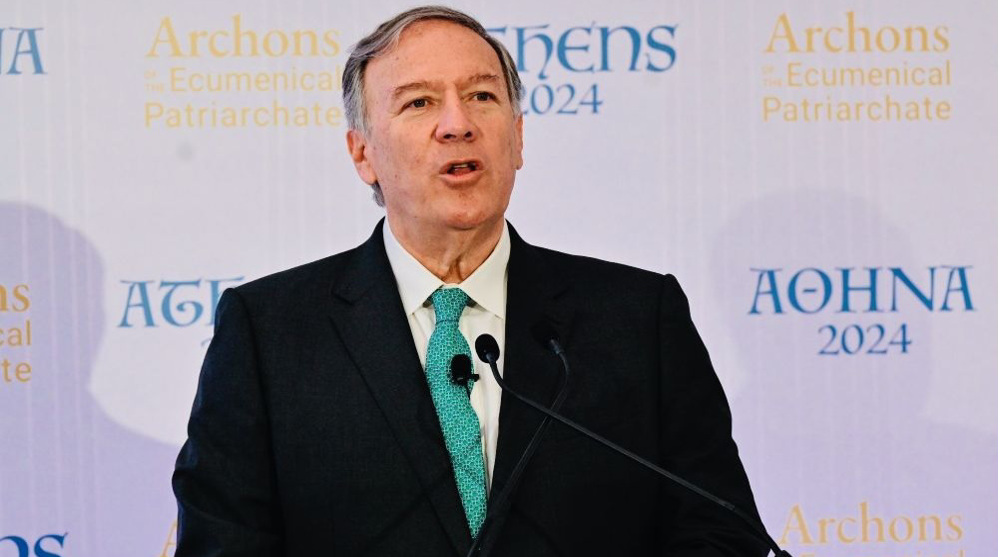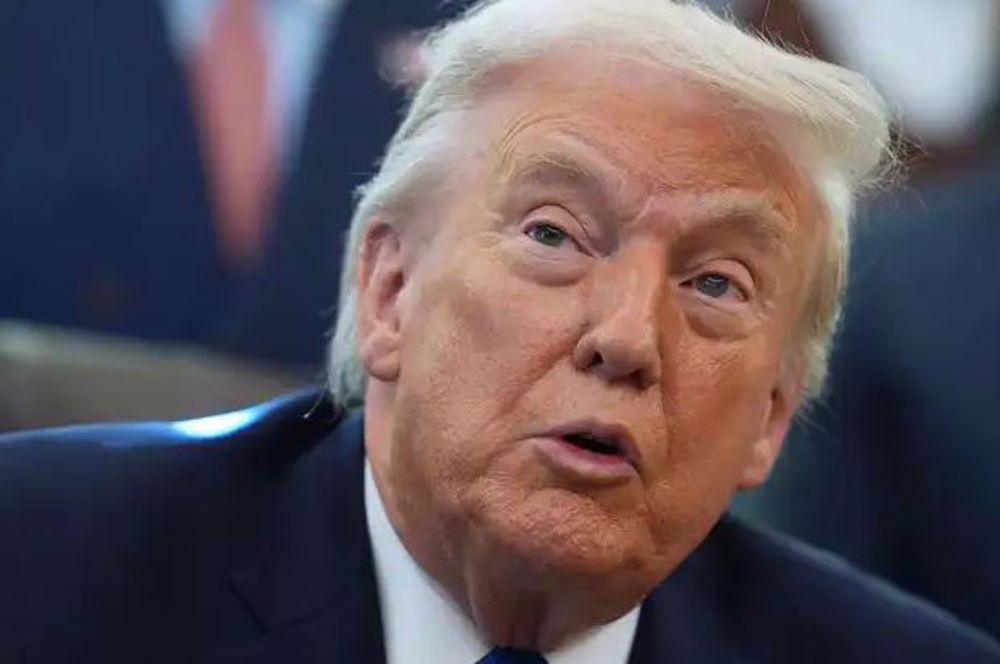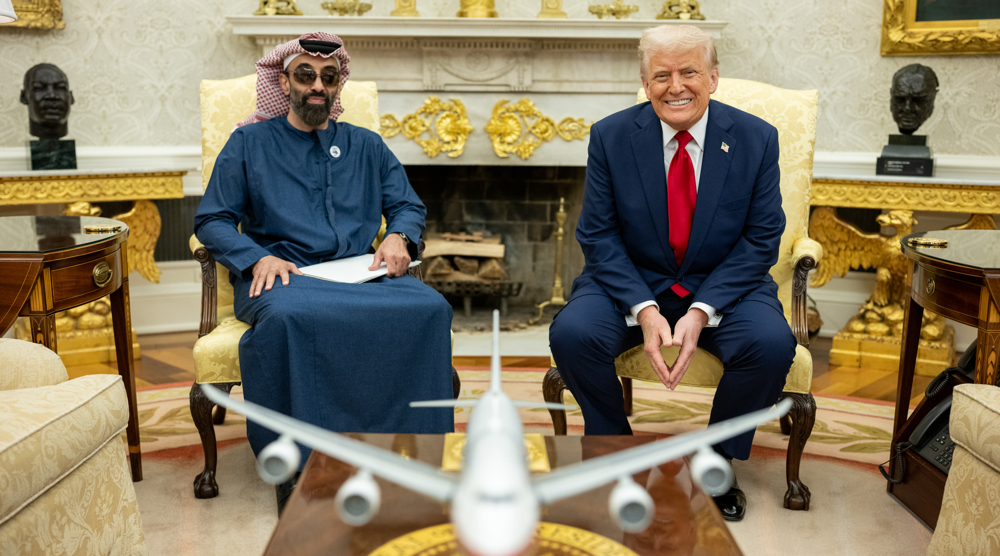North Korea condemns new US sanctions as ‘act of war’
North Korea has censured the latest round of sanctions imposed by Washington against Pyongyang as an “act of war,” accusing the US administration of trying to undermine an improvement in inter-Korean relations triggered by the Winter Olympic Games in the South.
The condemnation came on Sunday after the US Treasury blacklisted more than 50 North Korea-linked shipping companies, vessels, and trade businesses, imposing an asset freeze and barring US citizens from dealing with them.
US President Donald Trump described the measures as the “heaviest sanctions ever” levied on Pyongyang.
“The two Koreas have cooperated together and the Olympics was held successfully,” the North’s KCNA news agency cited North Korea’s Foreign Ministry as saying in a statement.
“But the US brought the threat of war to the Korean Peninsula with large-scale new sanctions on the DPRK ahead of the Olympics closing ceremony,” the statement said, using the initials of the North’s official name, the Democratic People’s Republic of Korea.
“Like we have said repeatedly, we would consider any restrictions on us as an act of war, and we will not stop the US if it really has the nerves to confront us in a ‘rough’ manner,” it added.
Tensions have been high between Washington and Pyongyang over North Korea’s missile and nuclear programs.
The administration in Washington claims it prefers a diplomatic solution to the crisis, but it repeatedly threatens Pyongyang with military action.
North Korea, already under numerous sanctions, has resisted the pressure campaign led by Washington to try to force Pyongyang to halt its weapons program. It has vowed to keep up the development of its weapons programs as a deterrent against the US, which has substantial military presence in the region.
High-level North Korean delegation arrives in South
Meanwhile, an eight-member delegation led by Kim Yong-chol, the vice-chairman of the North’s ruling Workers’ Party’s Central Committee, crossed the Demilitarized Zone between the two Koreas early on Sunday to attend the closing ceremony of the Winter Olympic Games in PyeongChang.
Television footage showed Kim, wearing a dark long coat and being greeted by South Korea’s vice unification minister, Chun Hae-sung.
South Korean media cited the Unification Ministry as saying that it would focus on holding further negotiations with the North as the delegation reportedly included diplomats in charge of the nuclear program and US-related issues.

The North Korean officials will be in South Korea until Tuesday to participate in the Winter Olympics’ closing ceremony, which will also be attended by US President Donald Trump’s daughter and adviser Ivanka.
Officials from both Seoul and Washington have said there will be no meeting between Kim Yong-chol and Ivanka Trump, who is traveling with Korea experts from the US administration and White House Press Secretary Sarah Huckabee Sanders.
The two Koreas have been improving ties since last month, when Pyongyang announced its willingness to take part in the Winter Olympics, a decision that led to the historic visit to the South by North Korean leader’s sister, Kim Yo-jong, during which an invitation was extended to South Korean President Moon Jae-in for a visit to Pyongyang.
Moon, who hopes to use the games as an opportunity to restore regular communication with Pyongyang and resolve a standoff over the North’s weapons programs, however, did not immediately accept the invitation to a summit in Pyongyang, saying the right conditions must be created first.
The two neighbors have been separated by a heavily-militarized border since the three-year Korean War came to an end in 1953. The conflict ended with an armistice rather than a formal peace treaty and left many families separated at the two sides.
The situation on the Korean Peninsula has been tense due to Pyongyang’s development of its nuclear and missile programs.
Protests erupt over attendance of North Korean delegation head
Meanwhile, the attendance of the Olympics’ closing ceremony by Kim Yong-chol, who was in the past a military intelligence chief, sparked a protest near the border with the North.
The blacklisted North Korean general is widely blamed for a spate of attacks, including the torpedoing of a South Korean warship in 2010 with the loss of 46 lives. Pyongyang denies responsibility.

Hundreds of protesters staged a sit-in at Tongil Bridge, trying to block a motorcade carrying the North Korean dignitaries to the PyeongChang Winter Games closing ceremony venue.
The protesters waved banners that read, “Arrest Kim Yong-chol!” and “Kim Yong-chol should kneel in front of the victims’ families and apologize!”
About 2,500 police were deployed at the border crossing to maintain order.
Iran unveils, inaugurates three homegrown strategic space projects
VIDEO | Venezuelans hold vigil for President Maduro on eve of one month since his kidnapping
AFC Futsal Asian Cup 2026: Iran into semifinals after comeback against Uzbekistan
#IR47: From 1978 ‘Black Friday’ to 2026 riots: How history keeps repeating itself in Iran
Australian charity channels tax-free donations directly to Israeli soldiers: Report
Palestinian abductee Khaled Al-Saifi dies a week after release from Israeli jails
Russia slams US threats against Iran as ‘unacceptable’, pushes for de-escalation
Epstein left millions to children of ‘disastrous’ Oslo Accords architects: Ex-UN official











 This makes it easy to access the Press TV website
This makes it easy to access the Press TV website